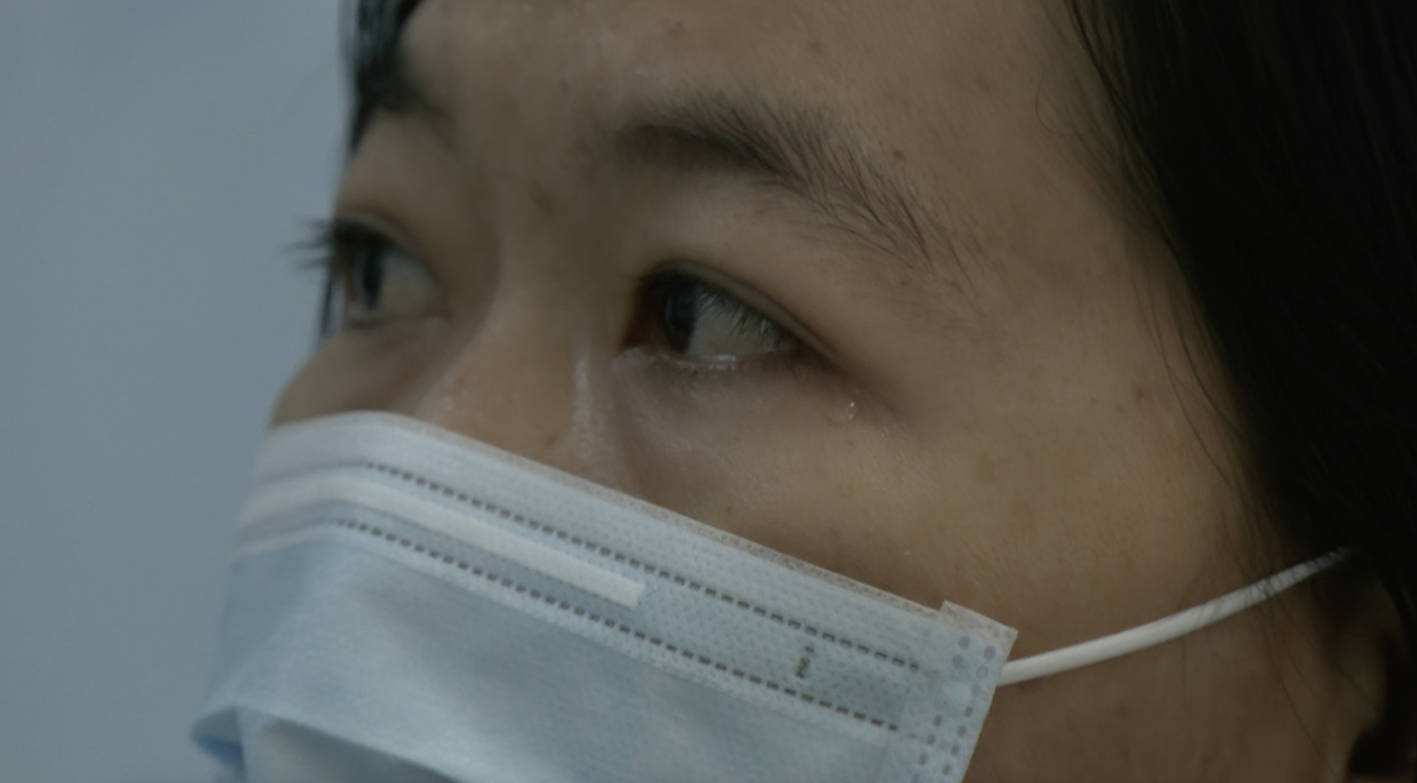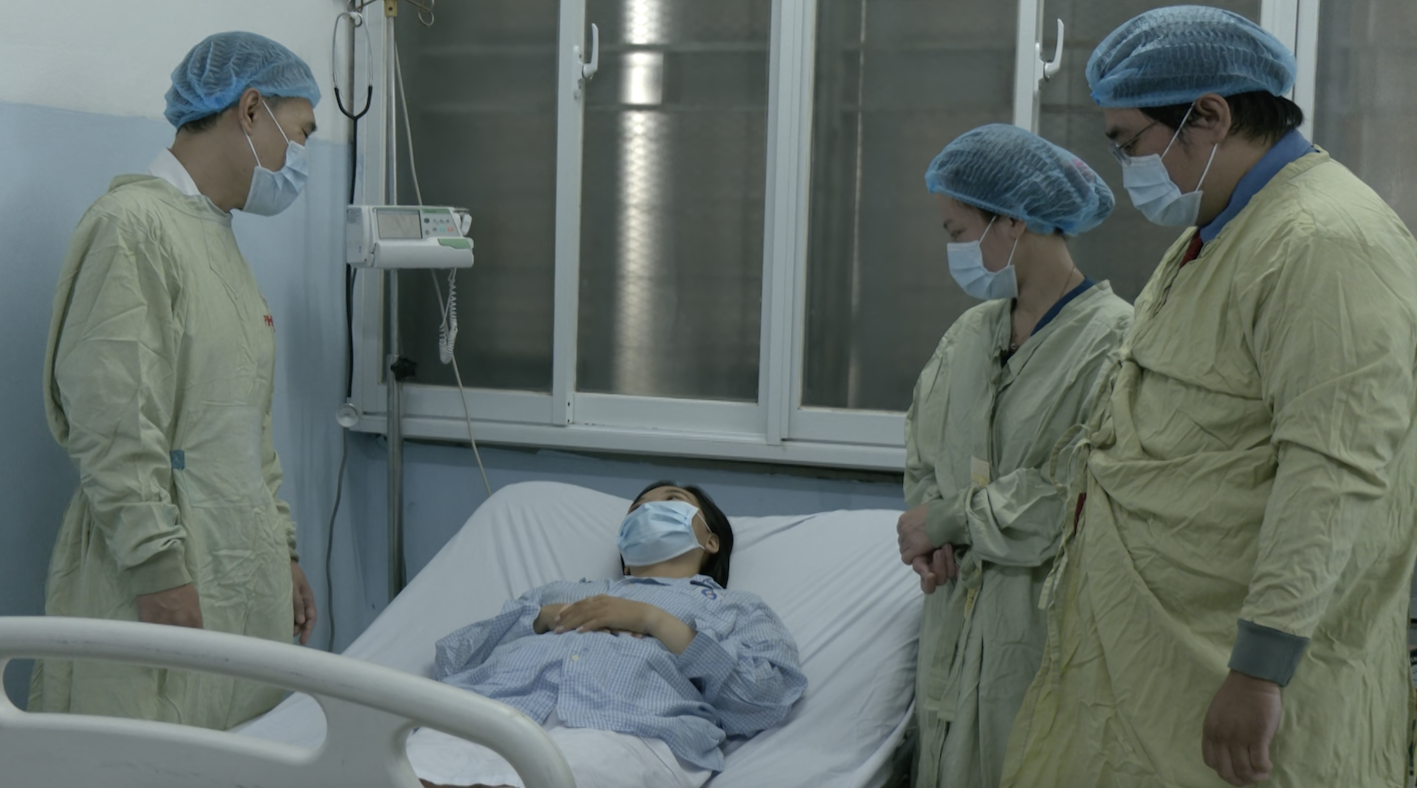End-stage renal disease in her early 30s turned her life upside down. At the time, her son was just over two years old, she was divorced, and she was the sole provider for both herself and her elderly mother. Three days a week were spent at the hospital for dialysis, while the remaining time she struggled to maintain her job as a pharmaceutical representative.
 |
The woman is emotional as she recovers thanks to a kidney donated from a brain-dead individual. Photo: Bich Hanh |
The dialysis consumed her time and energy, leaving her weaker, prone to fatigue, and occasionally fainting. She couldn't perform her job as effectively, resulting in decreased income. Meanwhile, the monthly medical expenses added a significant financial burden.
"I was not only saddened by the illness, but also felt inadequate because I couldn't properly care for my son," the patient confided.
Due to complications from dialysis, she underwent arteriovenous fistula surgery 4-5 times. Doctors predicted she couldn't continue dialysis for much longer. She registered for a kidney transplant at Gia Dinh People's Hospital—her last lifeline—but didn't dare to hope too much.
One afternoon in late June, while cooking, she received a call from the hospital informing her of a kidney from a 46-year-old woman who was brain-dead following a traffic accident. The kidney was highly likely to be a match.
"I dropped everything and rushed to the hospital for testing. Fortunately, it was a match, and I underwent the transplant. Everything happened so fast; I still couldn't believe it was real," she said.
The new kidney allowed her to urinate again, relieved her of the constant fatigue from dialysis, and improved her appetite. Food now had "a completely different flavor" compared to the previous "feeling of not being able to swallow rice." Test results indicated the transplanted kidney was functioning well, nearing normal levels, with no signs of acute rejection. Her creatinine clearance rate had significantly improved, and her urine output was stable.
"The donor's act of kindness, her family's generosity, is incredibly meaningful, a priceless gift to patients like me. Although I don't know who she was, she gave me a second life," the woman shared.
 |
The patient in an isolation room after a kidney transplant at Gia Dinh People's Hospital. Photo: Bich Hanh |
The other kidney from the same donor went to a 32-year-old man. He had been a salesman, but since being diagnosed with end-stage renal disease over four years ago, he'd been unable to work, relying on his mother for support. The donor's heart was transported to Hue for a transplant into a patient with end-stage heart failure.
On 13/7, Dr. Nguyen Xuan Toan, Head of the Department of Nephrology and Urology at Gia Dinh People's Hospital, reported that two weeks post-surgery, both kidney recipients were recovering well, having passed the high-risk post-transplant phase. They were expected to be discharged the following week and would receive regular follow-up care at the kidney transplant clinic.
Kidney transplantation offers the best quality of life for patients with end-stage renal disease. Not all patients have relatives who can donate a kidney. Organs from brain-dead donors are often the only chance for these patients to regain a normal life. In the first six months of this year, Gia Dinh People's Hospital performed four kidney transplants from brain-dead donors.
Le Phuong












